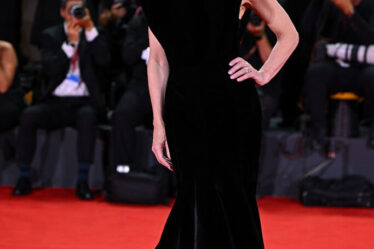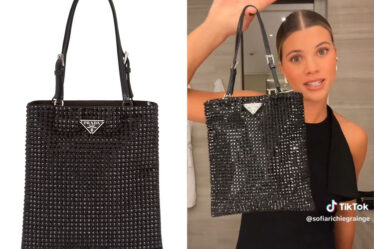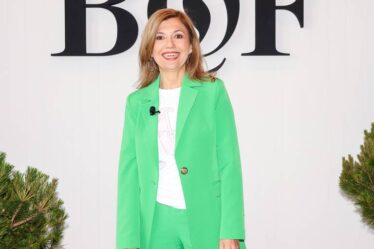Racial inequity continues to plague the fashion industry, despite increased attention in recent years on improving diversity, equity and inclusion (DEI) in its workforce. Some 68 percent of Black employees reported greater inaccessibility to the fashion industry versus 37 percent of white employees in the CFDA x PVH State of Diversity, Equity and Inclusion in Fashion 2021 report. For entry-level talent, 38 percent of Black survey respondents reported they were “not at all equipped” for their first job search versus 19 percent of white employees.
Raisefashion launched in July 2020 in response to Black Lives Matter and social justice movements. Leading executives in the fashion industry saw an opportunity — and responsibility — to cultivate a more diverse industry, to more actively promote and foster BIPOC talent and BIPOC-owned businesses. In a bid to improve accessibility to the fashion industry, Raisefashion launched its brand fellowship programme this year, for which 8 selected BIPOC designers, each of whom receive a $15,000 grant and gain key insights and strategies for building a successful brand as well as how to operationally achieve growth.
The programme is supported by mentors across the fashion industry and offers insights into: brand mission; fashion cycle; production and sourcing; logistics and operations; revenue channels; communication; finance; and investment readiness.
The brands established then participate in a pitch session, with two selected to receive an additional $15,000 each. All participants are given access to a library of resources and a network of entrepreneurs to tap into for increased success in building their business.
Outside of this programme, Raisefashion hosts numerous events and offers support to a wider group of emerging talent, including a volunteer network advisory of 300+ industry leaders with experience across all sectors of the market, including creative content, branding, merchandising, sales and business development. Advisors’ backgrounds range from high luxury to contemporary and mass markets, across men’s and women’s apparel, accessories, leather goods, jewellery and homeware.
Now, BoF sits down with Raisefashion’s executive director and founding board member, Felita Harris, to understand more about the nonprofit’s mission and the brand fellowship programme.
What is the mission of Raisefashion?
Raisefashion’s mission is to advance the equity of BIPOC talent in the fashion industry by providing pro-bono advisory support and expertise. We have evolved our mission over the last few years to ensure that we are bridging the knowledge and resource gap that we have observed designers struggling with.
Today, we advance the equity of BIPOC talent through mentorship, resources, access and a vibrant community. We support fashion brands with individualised plans to create and build business infrastructure and we discover the leaders of the future through our student internship programme.
There is a great deal of complexity in the fashion industry and we believe Raisefashion is uniquely positioned to support the community in navigating the nuances and challenges that designers face when scaling their businesses.
What key initiatives and support does Raisefashion offer BIPOC talent?
Through our mentorship programmes, we aim to empower individuals and brands in the fashion world to cultivate a more diverse industry — one that actively promotes and fosters BIPOC-owned businesses and BIPOC individuals. We connect talent to our network of advisors, who specialise in areas like e-commerce, digital marketing, retail, wholesale, legal services, press, finance, social media, supply chain and more.
Providing these resources to BIPOC brands is critical to breaking down the existing barriers to entry and supporting designers in achieving their dreams. To sustain and expand our programs, fundraising plays a vital role. It is crucial for us to continually raise funds to support the development and growth of our initiatives.
What is the brand fellowship programme and what does it entail?
We launched the inaugural Brand Fellowship Program in March of this year as a comprehensive, multi-disciplined 8-week masterclass conducted by experienced industry experts, advisors and senior executives.
Through this programme, designers gain key insights and strategies for building a successful brand as well as how to operationalise growth in the fashion industry. The sessions covered best business practices — from setting up wholesale relationships and driving revenue to creating a strong mission, to social media strategy and understanding the founder’s journey. Overall, they gain invaluable knowledge, resources, contacts and connections that will aid in scaling their business.
Following the completion of the programme, designers are given access to a library of tools and industry resources, as well as an opportunity to pitch their business to a panel of experts and qualify for an additional grant.
How do you select talent for the fellowship programme?
This year, the finalists were distinguished by their innovative approaches to their business model and a clear vision of their customer. Their accomplishments were particularly notable in areas such as design innovation, revenue scale, collaboration and social impact.
We are thrilled about the success of the brand fellowship programme, so we will definitely run this programme again in the future and announce the date on our social media channels.
How is community building and networking baked into the programme?
The programme has not only provided valuable knowledge and resources, but it has also nurtured a strong sense of community among the brand fellows and advisors involved. This community is designed to foster lasting connections that extend far beyond the duration of the programme itself.
Recognising that building meaningful relationships requires time and effort, the programme emphasises the importance of genuine connections through networking. Participants are encouraged to forge authentic bonds with fellow brand fellows and advisors, fostering a supportive community that can endure well into the future.
This community is designed to foster lasting connections that extend far beyond the duration of the programme itself.
We strive to create an environment that fosters collaboration, where individuals can come together to share ideas, insights and experiences. Our ultimate goal is to cultivate a community that thrives on the exchange of knowledge and the collective growth of its members.
What is your view on fashion’s progress towards improving DEI in the workforce to date?
The murder of George Floyd ignited an awareness within the fashion industry, among others, that it needed to re-evaluate and take responsibility for its lack of diversity and inclusion. In some areas, we are making progress — but not in all.
I believe we have since seen significant progress in the internship pipeline, middle management, and grant-based accelerator programmes. However, organisations are typically more transparent in admitting that leadership roles are one of their greatest challenges. These roles have become the highest priority among organisations seeking to advance and fulfil their DEI commitments.
However, we should all understand that this is an equity remodel, requiring a North Star that cannot be dimmed. It is not going to happen overnight, and we cannot let the economy or slashed corporate budgets dampen our hopes.
What key challenges do BIPOC fashion designers face today in fashion?
Funding continues to be a major issue as BIPOC designers scale to meet rising consumer demands and revenue opportunities. Unfortunately, many designers are faced with the difficult decision of deciding whether to close their businesses or feed their families, further exacerbated by the absence of a wide range of design jobs available to people of colour.
We strive to create an environment that fosters collaboration, where individuals can come together to share ideas, insights and experiences.
Stories such as these are more common today than when we launched three years ago — and we must take action to address them. So, in addition to providing grants and partnering with financial institutions, we are actively seeking funding and ways to provide more capital resources to our community.
How else does Raisefashion work with entry-level BIPOC talent to assist in their entry into the fashion workforce?
As a result of the lack of access to jobs and high living costs, BIPOC college students have faced significant barriers in securing internships in the fashion industry. Although we have made significant progress, we will continue programming as this remains an underutilised opportunity.
The Raisefashion internship programme is run by Alexa Geovanos, founding board member of Raisefashion. She and the team have done a remarkable job scaling the programme to include 13 Historically Black Colleges and Universities, or HBCUs. As a part of our partnership with BoF, our wider community of designers also receive a BoF Professional membership.
In addition, we have begun engaging our community in-person through events that provide networking opportunities for brands, partners, executives and interns. By having such a diverse community of industry experts, it’s a great opportunity to meet new people and reconnect with familiar faces.
This feature is part of a community partnership with Raisefashion.



